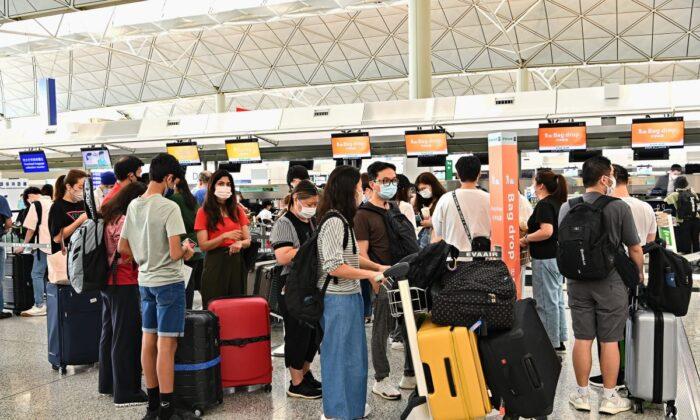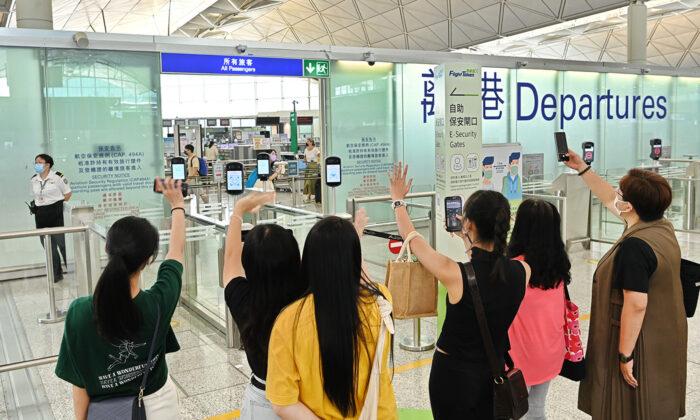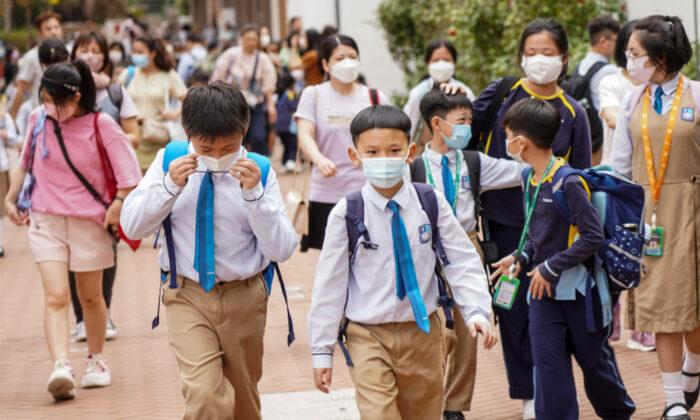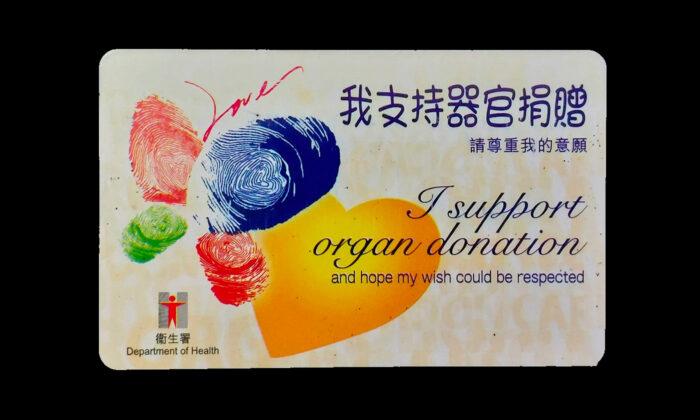The Hong Kong government implemented the new “0+3” quarantine measures on Sept. 26. After arriving in Hong Kong, inbound travelers are no longer required to undergo compulsory quarantine in designated quarantine hotels, but will be under three days of medical surveillance, and are allowed to go out but not eat in restaurants during that time.
The news immediately set off a rush for airline tickets and hotel accommodations for Hong Kong residents, which slowed the websites of airlines, travel agencies, and SAR passport applications, and caused fares for individual flights to soar. Some travel agency staff said that the price of a ticket to Japan had more than doubled.
Criticized for Relaxing Quarantine Regulations
As visitors to Hong Kong cannot enter restaurants and bars for the first three days after arrival, Chung Kim-wah, former associate professor of applied social sciences at the Hong Kong Polytechnic University sees the harm of such measures more than the benefits. “Unless there is a necessary reason to visit Hong Kong, there are many other options of travel destinations for foreign tourists,” he said.Recently, the Hong Kong Association of Athletics Affiliates announced the cancellation of the Standard Chartered Marathon (SCM). In contrast, the Singapore SCM will be held as scheduled on Dec. 4. The World Dragon Boat Racing Championships will be moved from Hong Kong to Thailand in 2023, and Royal Caribbean International intends to abandon the relaunch of the high sea cruise in Hong Kong. Pro-CCP party members, businesspeople, and medical professionals have also publicly criticized the Hong Kong government’s strict anti-epidemic policies, preventing Hong Kong society from resuming normal life, and damaging Hong Kong’s economy and international competitiveness.
On Sept. 23, Hong Kong Chief Executive John Lee held a press conference, announcing that in response to the decline of the epidemic and balancing various factors, the quarantine arrangement for inbound airline travelers was changed from “3+4” to “0+3;” presentation of a negative PCR report prior to boarding is no longer be required and is replaced by a declaration of rapid antigen testing (RAT). Vaccination for Hong Kong residents returning to Hong Kong has also been lifted. All measures became effective on Sept. 26.
Residents Booking Air Tickets and Accommodations
Once the update of the new measures was announced, Hong Kong residents scrambled to book air tickets and hotel rooms. Websites of airlines, travel agencies, and for HKSAR passport application were jammed, the price of particular flights rose sharply, and long queues formed outside travel agencies.Catering Industry: Few Visitors
On Sept. 25, five catering trade associations signed a letter to Chief Executive John Lee and Secretary for Health Lo Chung Mau saying they believe that the “0+3” measure will encourage a lot of citizens to travel abroad and thus undermine local retail sales and consumption. The number of incoming tourists will be far less than the number of citizens traveling abroad. Therefore, they anticipate a new hit to the catering industry, which would intensify the tide of closures and layoffs.Scholars Question the Merits of the ‘0+3’
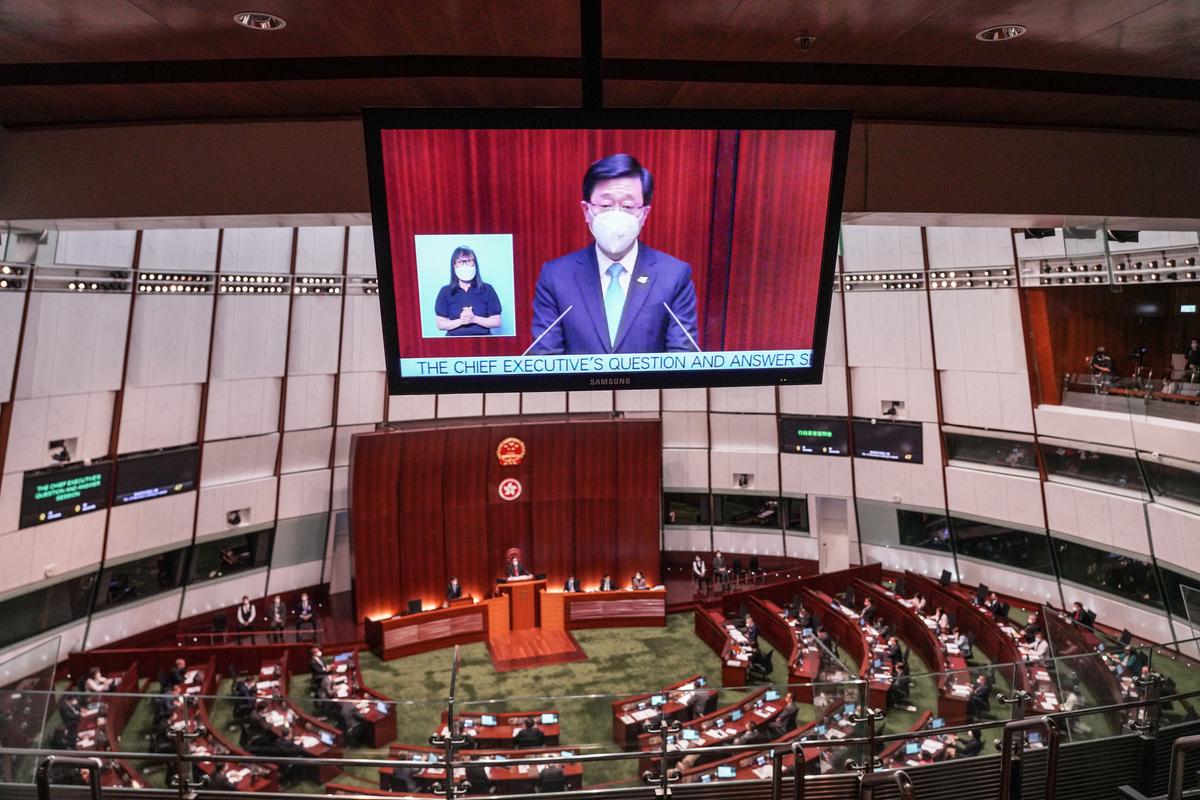
National People’s Congress Standing Committee member Tam Yiu-chung was asked on Sept. 25 about the timetable for moving to “0+0.” He said he agreed with the government’s gradual relaxation approach and believed that if the epidemic constantly stabilized, “0+0” could be implemented. He said the “0+3” measure is in line with public expectations and conforms to public opinion.
Regarding the impact of “0+3” on Hong Kong’s economy, scholars estimate that the retail and catering industries will definitely be “seeing the downside before they can benefit from the upside.” He also questioned why the Legislative Council, with many representatives of the business sector, seemed to play no role in the government’s change of policy, and why those in the business sector have not spoken up.
Taking a broader view, Chung believes that the move reflects the changes in the election system of the Legislative Council (LegCo). The entire LegCo is controlled by pro-CCP members, thus all members of the LegCo only look to the CCP for instructions. He also believes that the government’s suppression of the LegCo and District Council members will not make governance better, but will only make it more prone to mistakes, as there is no one to check and balance the government.
